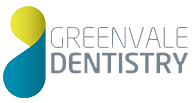How to Prepare for Wisdom Tooth Removal
Did you know that the large grinding teeth at the corners of your mouth (also known as wisdom teeth) are the last molars to erupt (generally between 16-23 years of age) and only need to be removed if they are not co-existing well with your mouth?
At Greenvale Dentistry we will discuss the treatment plan and ensure that you have ample opportunity to ask questions before you sign any consent forms.
If you do proceed with wisdom tooth removal we recommend that you start thinking about ways to prevent wound infection (for example no smoking) while recovering from surgery.
Act Before They Impact
Seek urgent dental attention if you experience gum inflammation, infection, pain or throbbing (pressure) discomfort at the back of your molars and mouth because you may need to remove a wisdom tooth. These painful symptoms usually indicate ‘impact’ where one or more wisdom teeth could be overcrowding or causing gum disease.
At Greenvale Dentistry we offer wisdom tooth removal services. Depending on the severity of the impact we may need to administer a local anaesthetic to block pain. If this is the case you will be given instructions to fast prior to the procedure i.e. no eating or drinking six hours prior to the extraction appointment.
Length of the surgery and pain relief requirements may determine whether the procedure is performed at a hospital or on-site in one of our purpose-built rooms by our dental surgeons.
To ensure a clean wisdom tooth removal we encourage healing of the gums with minimal surgery.
Recovery time depends on the individual although we generally advise a 48-72 hour period. There may be minor bleeding from the extraction area but that should ease within a day of the procedure. Patients are prescribed medication to assist with any post-operative discomfort and should follow instructions from the dentist.
Side Effects
- Swelling and bruising
- Sore and stiff jaw
- Bleeding from the gums
Complications can include infection, numbness (nerve damage), excessive bleeding and damaged teeth. Follow up with our team if these symptoms persist three days after surgery.
We recommend regular check-ups to plan ahead for sedation dentistry if an impact is imminent.
